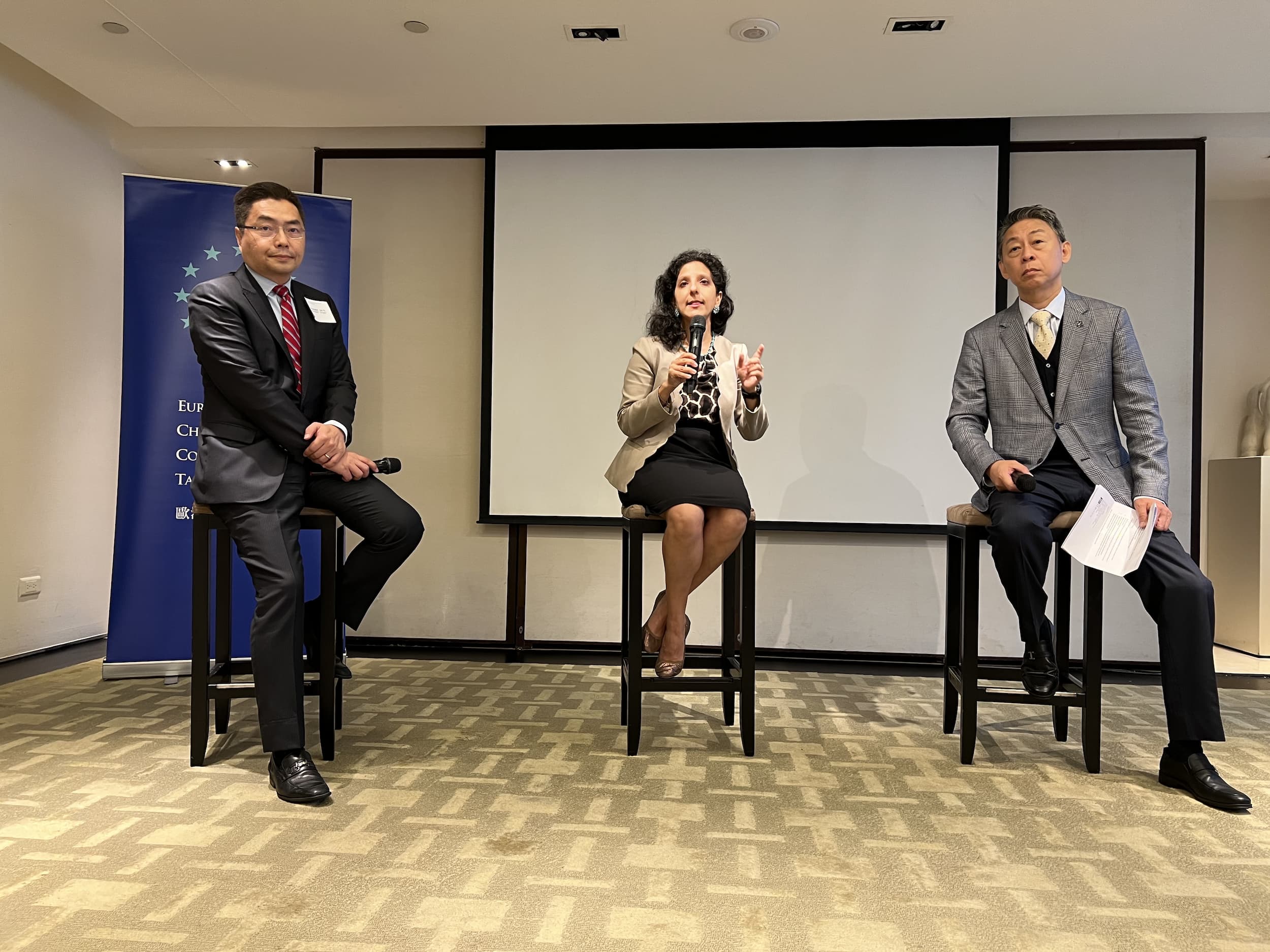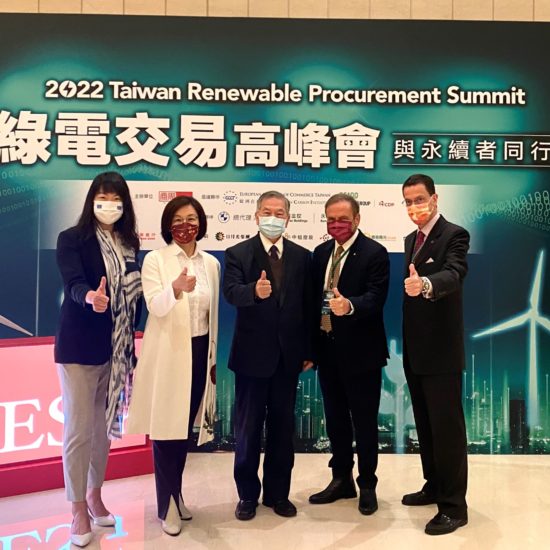Geopolitical & supply chain trends event

The ECCT arranged a Premium Event in the Next Generation Business & Leaders Series on the subject of geopolitical and global supply chain trends shaping the global economy in 2022. The event featured presentations by guest speakers Vincent Shih, Assistant General Counsel of Microsoft and General Manager of Corporate, External, and Legal Affairs for Microsoft Taiwan and Arati Shroff, Deputy Chief of the Economic Section of the American Institute in Taiwan (AIT). This was followed by a Q&A session that was moderated by ECCT chairman H Henry Chang.
In her speech, Arati Shroff discussed the importance of supply chain resiliency and the range of approaches countries, economies, and companies are taking to secure diverse supply chains for the future. Shroff cited US President Biden’s February 2021 executive order to review supply chains in four critical sectors: semiconductors, electric vehicles, critical minerals and medical industries, and ongoing efforts beyond these sectors. She emphasised that Taiwan is recognised as a pivotal node in the global semiconductor supply chain and a pioneer in emerging technologies.
Shroff highlighted that the US-Taiwan partnership on securing diverse, resilient supply chains is a great example of what the public and private sectors can do can when they partner together. She discussed the various high-level initiatives that are deepening and strengthening US-Taiwan economic and commercial cooperation. The United States and Taiwan established an Economic Prosperity Partnership Dialogue (EPPD) in 2020 to engage on issues of mutual interest, including supply chain resilience, economic coercion, the digital economy and 5G network security, and science and technology. The United States is also enhancing supply chain cooperation with Taiwan through the Technology Trade and Investment Collaboration (TTIC) framework.
In his presentation, Vincent Shih, highlighted the most significant trends as he sees them. Noting how digitalisation had enabled almost anything to be done remotely, he said that he expects hybrid working will become the norm post Covid. He said that the war in Ukraine has fundamentally changed the world and will have an impact on the global economy for many years to come.
The era of globally seamless supply chains with zero inventories has come to an end, according to Shih. Just in time supply chains are shifting to near-shoring or friend-shoring and gone are the days when companies would source everything from China. He went on to list the six key issues on the minds of his customers these days: Hybrid workplace (to empower innovation, collaboration and customer engagement); Data insights (Data-driven decision making guided by a single source of truth); Supply chain resilience and transformation (versatility, resilience, adaptiveness, diversification and geopolitics); Security (the foundation for all digital strategies) and Sustainability (carbon reduction, water positive, zero waste). He noted that until 2020 sustainability was viewed as a kind of “nice to have” way to boost PR but is now seen as essential in order to meet both regulatory requirements and customer needs.
In the Q&A session, Shih said that the shortage of talent is an issue in Taiwan. In this regard, he expressed the view that Taiwan would benefit by being more open to foreign talent, especially from elsewhere in Asia. On the question of doing business in China, Shih said that China remains an important market but that companies need to consider how to adapt to doing business in China. They cannot simply use the same approach that they use in other countries. He also made the point that investors in Taiwan may eventually be forced to seek business opportunities elsewhere if they cannot get enough renewable energy in Taiwan. This makes the lack of renewable energy sources a key risk for Taiwan-based exporters.

